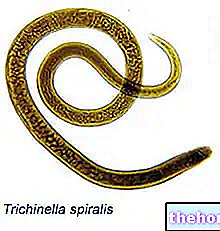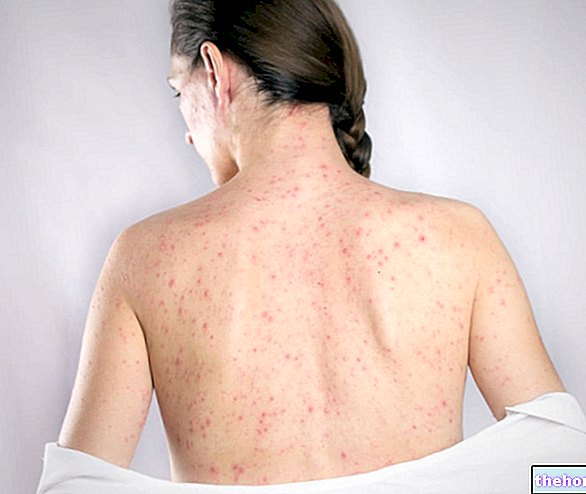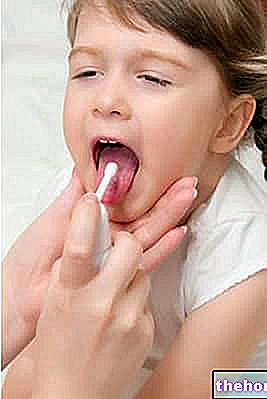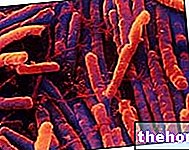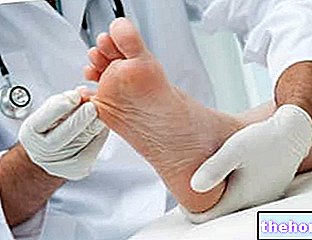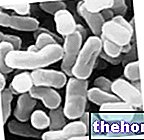Cold sores is an infectious disease caused by a virus. The specific infectious agent is called Herpes simplex type 1.
Cold sores manifest as an initial sensation of heat, tightness, itching and tingling in the lips, followed by the appearance of painful serous blisters; once absorbed or ruptured, these lesions evolve into easily bleeding scabs.
After the first onset, the disease becomes latent.
The appearance of new symptomatic episodes is favored by stressful or tiring periods (presence of other diseases, very intense sports, immune deficiencies, insufficient or incomplete nutrition, drugs, sun rays, etc.).

- If possible, avoid periods of excessive psychological stress (work, family, other commitments, etc.).
- Reduce the chances of contagion from other infectious diseases, for example: flu, cold, sore throat, cough, skin infections, etc.
- Ensure an overall adequate nutritional status.
- Increase the intake of vitamins (vitamin C and vitamin D above all) and specific minerals (magnesium, iron, zinc and selenium). They all contribute, albeit in different ways, to support the immune system.
- Increase the global intake of antioxidants (in addition to vitamin C, also vitamin A, vitamin E, polyphenols, etc.) They fight free radicals and improve the general oxidative state avoiding creating an optimal situation for viruses.
- Increase the intake of essential omega 3 fatty acids. They are anti-inflammatory and stimulate the production of antibodies by the immune system.
- Take probiotic and prebiotic foods. They improve the intestinal symbiotic bacterial flora, involved in the trophism of the immune system.
- Increase the intake of the amino acid lysine. The reason is not known, but it seems that it can reduce the frequency of acute colds for cold sores.
- Play sports with a reasonable frequency and intensity.
- Only take prescribed medications.
- Use sunscreen.
- Prevent lip chapping due to cold, wind, chemicals etc.
- For vitamin C or ascorbic acid: peppers, citrus fruits, parsley, kiwi, lettuce etc. They must all be fresh.
- For vitamin D: fish, fish oil and egg yolk.
- For zinc: liver, meat, milk and derivatives, some bivalve molluscs (especially oysters).
- For selenium: meat, fish products, egg yolk, milk and derivatives, fortified foods (potatoes, etc.).
- For magnesium: oil seeds, cocoa, bran, vegetables and fruits.
- For iron: mainly meat, fishery products and egg yolk.
- For polyphenolic antioxidants: especially fresh fruit and vegetables, but also red wine, seeds, aromatic herbs, tea, roots, medicinal herbs, etc.
- For lysine: meat, cheese, some fishery products and legumes (especially soy).
- For probiotics: all fermented foods such as yogurt, tofu, tempeh, buttermilk etc.
- For omega 3: oily fish, some oil seeds and related oils, algae.
- Cooked foods.
- Preserved foods.
These are:
- Zinc and / or heparin cream: decrease the duration and discomfort of the rash.
- Aciclovir (or similar): reduces the replicative capacity of viruses; it should be given at the first signs of a rash;
- Interferon: powerful antiviral action.
- Immunostimulants: mainly natural or synthetic thymic hormones.
- Antihistamines: against itching.
In addition to the prevention of contagion and relapses, and beyond the possible use of drugs for the treatment of herpes labial, no other effective medical treatments are known.

